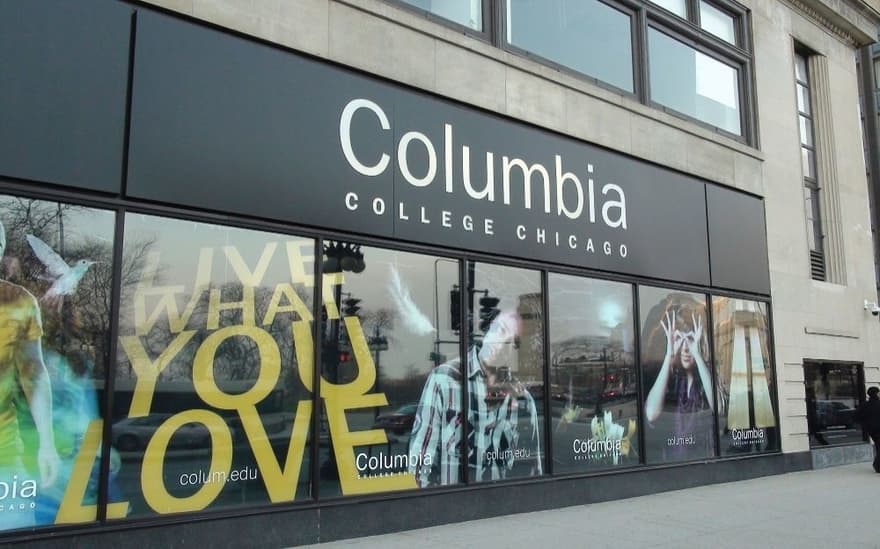Are you a student of Columbia College who is feeling overwhelmed with your student loans? If so, you would be wondering about the loan forgiveness and repayment options available to you.
When it comes to paying for college, there are many different options to consider. One option that many students choose is to take out a student loan. Student loans can be a great way to pay for school, but they can also be a burden if you are not careful.
If you are a student of Columbia College, there are a few different loan forgiveness and repayment options available to you. Let’s take a closer look at each of them.
About Columbia College
Columbia College is a private, nonprofit institution that was founded in 1851. It has campuses in Missouri, Texas, and South Georgia.
Columbia College is associated with the Christian Church (Disciples of Christ). The college offers undergraduate and graduates degrees in a variety of disciplines. It also has a connection with the military, which offers its students the option to serve in the Army ROTC program.
Columbia College is accredited by the Higher Learning Commission.
The College’s Mission
The College is dedicated to providing students with an education that will equip them for lifelong learning and service. The college
Columbia College Loan Forgiveness and repayment options.
There are five different loan forgiveness and repayment options available to Columbia College students. Let’s take a closer look at each of them.
Public Service Loan Forgiveness (PSLF)
Public Service Loan Forgiveness (PSLF) is a federal loan forgiveness program available to Columbia College students. This program is designed to help students who work in public service jobs.
To be eligible for PSLF, you must meet the following requirements:
-You must have a federal student loan.
-You must be working for a qualified public service organization.
-You must make 120 qualifying monthly payments on your student loan.
If you meet all of the requirements, you may be eligible for loan forgiveness.
Borrower defense to repayment
The Department of Education offers a program called Borrower Defense to Repayment for students who have been defrauded or misled by their school.
Borrower defense to repayment is a process that allows borrowers to have their loans forgiven if they can prove that the school misled them or violated certain laws.
To apply for borrower defense to repayment, you must submit a claim form and provide evidence of your school’s misconduct.
Income-Based Repayment (IBR)
If you cannot make your loan payments, you may be able to reduce your monthly payments through Income-Based Repayment (IBR).
With IBR, your monthly payments will be based on your income and family size.
Your loan will also be forgiven after 20 or 25 years of payments, depending on the type of loan you have.
There are four types of IBR plans:
- Pay As You Earn Repayment Plan (PAYE))
- Revised Pay As You Earn Repayment Plan (REPAYE)
- Income-Contingent Repayment Plan (ICR)
- Income-Based Repayment Plan (IBR)
Student Loan Consolidation
Student loan consolidation is the process of combining multiple student loans into one loan.
When you consolidate your loans, you will have a single monthly payment and a longer repayment term.
Student loan consolidation can be a helpful way to manage your student loans, but it is important to understand the terms and conditions before you consolidate.
Total and Permanent Disability Discharge
If you become permanently disabled, you may be eligible for a Total and Permanent Disability Discharge.
This discharge is available to borrowers who cannot work because of their disability and borrowers who are unable to complete their education because of their disability.
To be eligible for a Total and Permanent Disability Discharge, you must provide proof of your disability.
Columbia College Acceptance Rate
The acceptance rate at Columbia College is 78%.
To be accepted into Columbia College, you must have a high school diploma or equivalent.
The school also accepts students who have completed some college coursework.
Columbia College Tuition
The tuition at Columbia College is $21,090 per year.
If you are a Missouri resident, you may be eligible for the Missouri Tuition Advantage program, which offers reduced tuition rates.
Columbia College offers a variety of financial aid options, including grants, scholarships, loans, and work-study.
The school also offers a payment plan that allows you to pay your tuition in monthly installments.
Columbia College Reviews
The reviews for Columbia College are generally positive.
Students appreciate the small class sizes and the variety of disciplines offered at the school.
However, some students complain about the high tuition rates and the lack of campus life.
Columbia College lawsuit
In June 2020, during the wake of the coronavirus pandemic when all schools were closed, a student filed a class-action lawsuit against Columbia College demanding a refund of the tuition fees she and other students had paid.
The student alleged that the college paid for the losses incurred from the school’s closure, such as lost instruction time, lack of access to resources caused by campus closures due to the coronavirus pandemic, and “inferior” online classes.
To read more about this lawsuit, click here.
Need Help with student loans?
If you’re having difficulty keeping up with your student loan payments, or want to learn more about your alternatives, do not hesitate to contact us. You can call or fill out a form and speak to one of our student loan advisors.
We have a number of resources that can help you make the best decision for your financial future.





